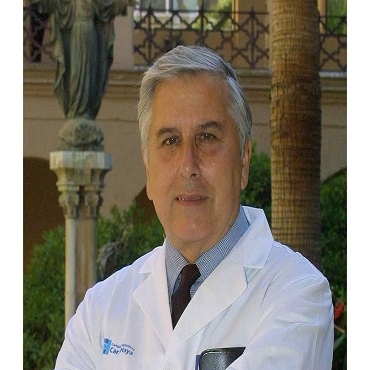
Clinical Trial 2020

Theme: New clinical trial rules to boost growth of clinical research
Clinical Trials 2020 conference warmly invites all the participants from all over the world to Annual Clinical Trial, Compliance & GCP Summit scheduled on May 25-26, 2020 at Tokyo, Japan which is based on the theme " New clinical trial rules to boost growth of clinical research”.
Scientific sessions of Clinical Trial 2020 mainly have Future and scope of Clinical Trial: Future & Scope, Risk Management Of Clinical Research, Clinical Research and Trials on Diabetes,Cancer and AIDS, Bioethics and Quality Regulation, Pharmacovigilance and Drug Safety.
Tokyo has combinations of the ultramodern and the traditional, skyscrapers, and historic temples. Remarkable places in Tokyo which makes it best tourists places are Tokyo Tower, The Imperial Palace Gardens, Senso-ji Temple and many more.
Scientific Sessions
Session 01: Clinical Trial: Future and Scope
It has been already showed that bringing medical products to market costs $1.3 billion and 1 out of every 5000 experimental compounds achieves FDA approval. However, market saturation in varies disease models is also has forced biopharmaceutical industries to focus on the efforts on investigating patients with pandemic diseases. The scope to the clinical trials stated as follows. Access and engage the patient online i.e. to attract patients to the trial. Consent patients as well as converting to subjects.Some of the sponsor plans to have interaction the patient through social media so as to draw in the patient to the trial, and once the patient agrees to be told additional concerning the trial, the sponsor mails the patient a package containing mobile health devices, that collect medical diagnostic knowledge and sends that knowledge to the sponsor.
Session 02 : Risk Management of Clinical Research
The main purpose of clinical trials is the development of new medicinal products. Hence, it is important that the studies should produce high-quality data in the shortest possible time. Companies are now using single, larger, complicated trials in order to gain the greatest amount of information about a product and thus reduce the lead time to market. A key element in ensuring this goal is the close cooperation between those responsible for the provision of the clinical trial supplies. The scope is organized by a special group, often within the product development department, and it is prudent to discuss a proposed trial with this group at an early stage so that any potential difficulties can be identified and resolved. The value of some study drugs can reach tens of millions of dollars, making it essential to avoid overproduction, oversupply, and inventory expiration. Because of the strict handling, high costs and need for many biopharmaceutical products which are digitalizing in the logistics of clinical trial supplies and clinical development are more critical than before.
Session 03 : Clinical Trials on Different Diseases
Clinical Trials for different diseases and disorders are conducted for estimating more than one intervention such as drugs, medical devices, approaches to surgery or radiation therapy for treatment of a disease, syndrome also finding ways to prevent the initial development or recurrence of a disease or condition. These mainly include vaccines, medicines and lifestyle changes among other ways. Diseases and disorders for which clinical trials conducting are Cardiovascular, Digestive system, Respiratory system diseases and other parasitic, viral, bacterial and fungal diseases. And Clinical Trials on behaviours, mental, sleep and eating disorders.
Session 04: Modernization in Clinical Trials
The globalization of clinical research is most recent phenomenon which has many of these studies that is taking place on a global scale, with a significant increase of clinical trials in developing countries. Developed markets in the United States, Western Europe, Germany, and Japan still generate the lion’s share of clinical trial activity. Nearly 51% of the world's clinical trials are conducted outside of USA. According to the report China, Japan, India, and Korea are the most active settings for clinical trials are in developing nations. It is predicted that largest average annual growth occurred in lower-middle income (33%) and low-income (21%).
Session 05: Clinical Data Management and Statistics
Clinical data management is the process of collecting cleaning, integrating and managing of subject data in compliance with regulatory standards. It is an important phase in clinical research, which leads to generation of statistically reliable high-quality sound data from clinical trials. This is regulated by the use of software applications which maintains an audit and provide easy and resolution identification of data discrepancies.
Session 06: Clinical Research and Trials on Diabetes / Cancer / AIDS
HIV/AIDS clinical trials are research core and more studies are discovered to better methodology to avoid, recognize, and treat AIDS. Cases of HIV/AIDS clinical trials incorporate investigations of new HIV prescriptions, investigations of antibodies to counteract or treat HIV, and investigations of solutions to treat diseases identified with HIV. Clinical research is the way to figure out whether new medicinal ways to deal with AIDS are sheltered and powerful in individuals. The advantages and disadvantages of taking an interest in a HIV/AIDS clinical trial are disclosed to study volunteers before they choose whether to take an interest in the article.
Session 07: Bioethics and Quality Regulation
Clinical research ethics is the group of relevant ethics considered in the field of a clinical trial. Quality of clinical trials is dependent upon Globalization, outsourcing, subject protection and increase in complexity of clinical trials has made the target of achieving global quality challenging. The quality as stated by regulatory inspections of the investigator sites, sponsors research organizations and Institutional Review Board, has been of view to the US Food and Drug Administration, as there are hardly any change in frequency and nature of deficiencies.
Session 08: Therapeutic Drug Monitoring and Drug Quantification
Anti-epileptic drugs have a narrow therapeutic range as they are serum proteins. A Cardio active drug Digoxin is mostly used has a narrow therapeutic window. The immunoassays employed in monitoring concentration of serum digoxin have interference from both exogenous and endogenous compounds. Anti-asthmatic drugs theophylline and caffeine also require Therapeutic Drug Monitoring. I Whole blood concentration is determined to avoid drug toxicity which has led to organ rejection. Antibiotics like aminoglycoside produce Nephrotoxicity and Ototoxicity. Drug assay methods must have adequately sensitivity and should be specific to the metabolites which are accurate and precise. High-volume drug assays are now performed with the immunoassay methods. Although, HPLC and GLC is also used.
Session 09 : Clinical and Medical Case Reports
Case report is about an unusual or previously unknown condition, complication a rare presentation of a known disease and a new approach to managing a common condition. It also provides the detailed report of signs, symptoms, treatment, diagnosis, and follow-up of every patient and play major role in the field of medical research and evidenced based medicine. However, case reports serves as signal for the adverse effects of new medications, or the presentations of new and emerging diseases.
Session 10: Pharmacovigilance and Drug Safety
Information which is been received from patients and healthcare providers by pharmacovigilance agreements, plays a major role in providing the data important for Pharmacovigilance to take place, in a way to market or to test a pharmaceutical product, adverse event data should be submitted to the local drug regulatory authority. Finally pharmacovigilance is associated with identifying the hazards associated with pharmaceutical products and with reduced risk of any harm that may come to patients by safety surveillance and risk management.
Market Analysis
The global clinical trials market size is anticipated to achieve USD sixty eight.9 billion by 2026, in line with a replacement report by Grand read analysis, Inc. The estimated expand at a CAGR of 5.7% throughout the forecast amount. Key drivers impacting the market growth are globalisation of clinical trials, development of latest treatments like customized drugs, augmenting evolution in technology and rising demand for CROs to conduct clinical trials.
Why to organize this conference?
1. To understand Real World Clinical Trial Strategies
2. To Outsource models and strategies
3. To know new innovations in Patient Recruitment planning
4. To track Patient Recruitment and Site selection
5. To keep Patients informed after the Trial - Post-Clinical Trial
6. How to future proof clinical trial operations
7. Follow Data Quality & Technology
8. For Implementing Risk Based Monitoring
Importance & Scope
Globalization has a permissive extend in investment in new development in rising countries thereby, completely impacting the market, Pfizer presently has 3 CROs operating with it to boost its product portfolio and drive innovation. In line with the partnership agreement with ICON in 2011, Pfizer would solely preserve the scientific possession for the trials and studies conducted by ICON, therefore permitting the corporate to focus and more develop its capabilities in test planning.
Growing prevalence of illness and new illness cases is anticipated to administer more boosts to the test market. This can be expected to spice up the clinical trials of latest or rare diseases that otherwise wouldn't have found any sponsors. A lot of range of patients having a particular illness would act as information for biopharmaceutical corporations to take a position a lot of in clinical trials for an illness section.
TOP GLOBAL UNIVERSITIES
AMERICA
• Auburn University, USA
• University of Arizona, USA
• University of Arkansas for Medical Sciences, USA
• University of Southern California, USA
• Western University of Health Sciences, USA
• Mercer University, USA
• Midwestern University, USA
• California Health Sciences University, USA
• University of Saint Joseph, USA
Europe
• Aston University, UK
• University of Bradford, UK
• Liverpool John Moores University, UK
• University of Nottingham, UK
• University College Cork, Ireland
• University of Debrecen, Hungary
• UCL School of Pharmacy, Hungary
• De Montfort University, UK
Asia Pacific
• Tsinghua University, China
• The University of Tokyo, Japan
• National University of Singapore (NUS), Singapore
• Kyoto University, Japan
• Peking University,China
• National Taiwan University (NTU), Taiwan
• Osaka University, Japan
• Universiti Sains Malaysia (USM), Malaysia
• Indian Institute of Technology Bombay (IITB), India
• University of the Philippines, Philippines
• Beijing Institute of Technology, China
Middle East
• Qatar University, Qatar
• Lebanese American University, Lebanon
• American University, UAE
• Alexandria University, UAE
• United Arab Emirates University,United Arab Emirates
• University of Sharjah, UAE
• Gulf Medical University, UAE
• Oman Medical College, Oman
FUND ALLOTMENT TO CLINICAL TRIAL RESEARCH
Overall, $22 billion of the targeted $132 billion recently invested in research and development) by all sectors in the National Institutes of Health, National Science Foundation. In the 1980s, the portion is supported by the federal government, decreasing from 59 % in 1980 to an estimated 41% in 1992. The most prominent change in this ratio has occurred over the decade. It is growing exponentially by industry, from 31 to 48 % over the same period. Understanding how critical funding leads to successful research careers, mainly the perception by scientists of their inability to garner funds for patient-oriented studies, the committee is made to develop a clearer understanding of the research funding. Most of the authorized papers included some reference to research funding and the committee has sponsored an invitational workshop. As there are inadequate data collection methods by research sponsors, it was impossible to disaggregate research funds devoted to patient-oriented clinical research from already present research funds. When made possible, however, the trends in funding for patient-related research are well explained. Since academic research careers are closely intertwined with the peer-reviewed, investigator-initiated grant system in the Public Health Service, including NIH.
REFRENCES
https://www.ncbi.nlm.nih.gov/books/NBK236339
https://clinicaltrials-research.pharmaceuticalconferences.com
https://www.ncbi.nlm.nih.gov/pmc/articles/PMC5639984
- Clinical Trial: Future and Scope
- Modernization in Clinical Trials
- Clinical Data Management and Statistics
- Bioethics and Quality Regulation
- Clinical Trials on different Diseases
- Therapeutic Drug Monitoring and Drug Quantification
- Clinical Research and Trials on Diabetes / Cancer / AIDS
- Good Clinical Practice (GCP)
- Risk management in Clinical Trials
- Clinical and Medical Case Reports
- Pharmacovigilance and Drug Safety
- Journal of Pharmaceutics & Drug Delivery Research



















































































































